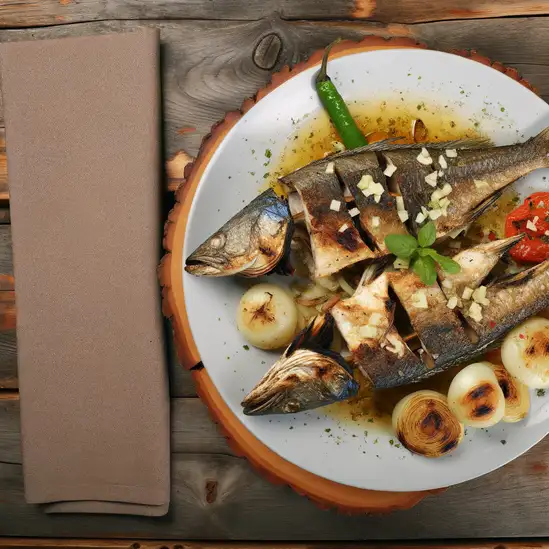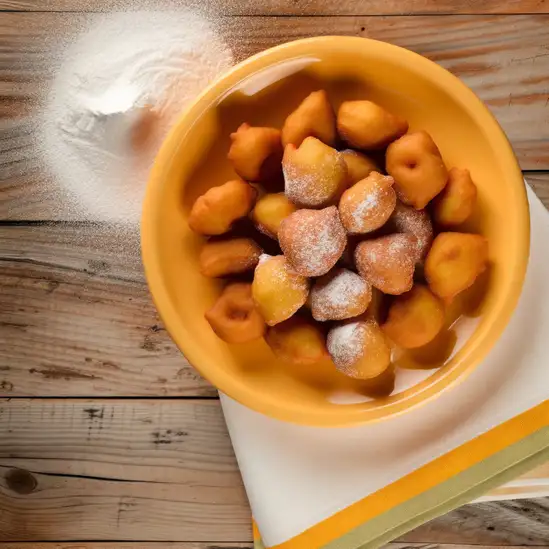



If you ever find yourself wandering the sun-drenched coast of Croatia,Stari Grad on the island of Hvar is a place that quietly steals your heart. The moment you step into its ancient stone streets,there’s this gentle hum of history mixed with the salty sea breeze that feels like a warm welcome. It’s not just a town; it’s a living story,where every corner whispers tales from centuries past,yet the vibe is effortlessly relaxed and inviting. Walking along the harbor,you’ll catch the scent of fresh pine mingling with the briny air,while fishermen unload their catch and locals chat animatedly over espresso at tiny cafés. The sunlight bounces off the terracotta rooftops,casting a golden glow that makes everything feel timeless. At night,the soft clinking of glasses and laughter spills out from cozy tavernas,where you can savor freshly grilled fish paired with a glass of local white wine that tastes like sunshine in a bottle. What makes Stari Grad truly special is its blend of old-world charm and genuine warmth. It’s a place where you can lose track of time wandering through vineyards that have been cultivated since Greek settlers arrived over two millennia ago,or simply sit by the water and watch fishing boats bob gently as the sky turns pink. It’s not flashy or loud,but it’s full of soul — a place that invites you to slow down,breathe deeply,and soak in the simple beauty of life by the Adriatic.
The information on this page is currently being reviewed by Tripkliq and should be used as a guide only
Eng word: Hello
Eng pronunciation: Bohk
Local language: Bok
Eng word: Goodbye
Eng pronunciation: Doh-vee-jen-ya
Local language: Doviđenja
Eng word: Thank you
Eng pronunciation: Hvah-lah
Local language: Hvala
Eng word: How much
Eng pronunciation: Koh-lee-koh
Local language: Koliko
Eng word: Toilet
Eng pronunciation: Toh-ah-let
Local language: Toalet
Eng word: Help me
Eng pronunciation: Poh-moh-zee mee
Local language: Pomozi mi
Eng word: Yes
Eng pronunciation: Dah
Local language: Da
Eng word: No
Eng pronunciation: Neh
Local language: Ne
Eng word: Excuse me
Eng pronunciation: Oh-proh-stee-teh
Local language: Oprostite
Stari Grad, originally known as Pharos, was founded by Greek settlers from the island of Paros in 384 BC, making it one of the oldest towns in Europe.
The Stari Grad Plain, an agricultural landscape dating back to the 4th century BC, is a UNESCO World Heritage Site, recognized for its ancient Greek land division system that is still in use today.
Tvrdalj Castle, a fortified Renaissance residence, was built by the Croatian poet Petar Hektorović in the 16th century. It features a fish pond and a beautiful garden, reflecting Hektorović's love for nature and literature.
St. Stephen's Church, located in the main square, was built in the 17th century on the site of an earlier church. Its bell tower offers stunning views of the town and surrounding area.
Founded in 1482, the Dominican Monastery houses a rich collection of art and artifacts, including a 17th-century painting of the Last Supper by Venetian artist Matteo Ingoli.
The Stari Grad Museum, located in the Biankini Palace, showcases the town's rich history through archaeological finds, historical documents, and ethnographic exhibits.
Petar Hektorović, a renowned Croatian Renaissance poet, was born in Stari Grad. His most famous work,'Ribanje i ribarsko prigovaranje' (Fishing and Fishermen's Talk), is a unique blend of poetry and prose.
The historic town center of Stari Grad is a maze of narrow streets and stone houses, reflecting its medieval and Renaissance past. It's a perfect place for a leisurely stroll.
St. Jerome's Church, built in the 15th century, is known for its beautiful Gothic architecture and serene atmosphere. It is a testament to the town's rich religious heritage.
In Stari Grad, the most common Power Adaptor is Type C, Type F.



A traditional Croatian dish made by slow-cooking meat and vegetables under a bell-like lid, often served with potatoes.

Grilled fish, often prepared with local herbs and olive oil, showcasing the fresh seafood available in the Adriatic.

A savory pie filled with Swiss chard and onions, encased in thin layers of dough, originating from the Dalmatian region.

Small, sweet doughnuts flavored with citrus and often sprinkled with powdered sugar, popular during festive seasons.

A rich beef stew marinated in red wine and spices, typically served with gnocchi or homemade pasta.
If you ever find yourself wandering through Split,it’s like stepping into a living,breathing storybook where ancient history and vibrant modern life dance together effortlessly. The moment you stroll along the Riva promenade,the salty breeze from the Adriatic mingles with the aroma of fresh espresso and grilled seafood wafting from nearby cafés. Locals chat animatedly in the sun-dappled squares,their laughter blending with the distant hum of boats bobbing gently in the harbor. There’s a laid-back energy here that feels both timeless and alive,inviting you to slow down and soak it all in.
Split’s heart beats strongest in Diocletian’s Palace,a sprawling Roman fortress that’s less a museum and more a neighborhood where people live,shop,and gather. Walking through its ancient stone alleys,you’ll catch glimpses of colorful markets,artisan shops,and cozy taverns tucked into centuries-old walls. At night,the city transforms as lanterns flicker on,and the sound of live klapa singing—traditional a cappella harmonies—drifts through the air,wrapping you in a warm,soulful embrace.
What really makes Split unforgettable is how effortlessly it blends the old with the new. You can savor a plate of fresh octopus salad while watching fishermen haul in their catch,then wander to a rooftop bar for a cocktail as the sun sets behind the islands. It’s a place where every corner tells a story,every meal feels like a celebration,and every moment invites you to become part of its ongoing tale.
If you ever find yourself wandering through the sun-drenched streets of Dubrovnik,you’ll immediately feel like you’ve stepped into a living storybook. The city’s ancient stone walls rise proudly against the sparkling Adriatic,and as you stroll along the marble-paved Stradun,the salty sea breeze mingles with the scent of fresh pine and blooming bougainvillea. There’s a rhythm here—a gentle hum of life where history and modern charm dance together effortlessly.
Dubrovnik’s character is woven into every corner:the clatter of café cups,the murmur of locals chatting in cozy taverns,and the distant call of seagulls overhead. You can almost taste the city in the air—briny and fresh,with hints of grilled seafood and ripe figs from the markets. Sitting at a seaside restaurant,watching the sun dip behind the fortress walls,you’ll savor dishes bursting with Mediterranean flavors,paired with a glass of crisp Croatian white wine.
What makes Dubrovnik truly special is how it balances its rich past with a vibrant present. The city’s narrow alleys invite exploration,revealing tucked-away galleries,artisan shops,and lively squares where music spills out into the streets. Whether you’re tracing the footsteps of ancient mariners or simply soaking up the golden light on a quiet terrace,Dubrovnik feels like a warm embrace—inviting,timeless,and utterly unforgettable.
Imagine stepping into a sun-drenched town where lavender-scented breezes mingle with the salty kiss of the Adriatic Sea—that’s Hvar for you. From the moment you wander through its ancient stone streets,there’s a relaxed yet vibrant energy that wraps around you like a warm embrace. The sunlight bounces off terracotta rooftops,and the sound of laughter spills out from cozy cafés where locals sip espresso and chat animatedly. It’s a place where history and modern life dance effortlessly together.
As you stroll along the harbor,sleek yachts bob gently beside fishing boats,and the air carries the faint aroma of grilled seafood and fresh herbs. The town’s medieval walls and the imposing fortress overlooking the bay tell stories of centuries past,while the lively markets burst with ripe figs,olives,and sun-ripened tomatoes. At sunset,the sky blazes in shades of pink and gold,and the waterfront buzzes with music drifting from open-air bars,inviting you to linger just a little longer.
What makes Hvar truly special is its blend of authenticity and joie de vivre. It’s not just a place to see but a place to feel—whether you’re savoring a glass of local Plavac Mali wine,exploring hidden coves by boat,or simply watching the world go by from a shaded terrace. Hvar’s charm lies in its ability to make you slow down,breathe deeply,and soak in the simple pleasures of life by the sea.
If you ever find yourself wandering the Dalmatian coast,Zadar is one of those places that sneaks up on you with its quiet charm and unexpected magic. The moment you step onto its ancient stone streets,there’s this warm,timeless feeling—like the city is gently humming a tune just for you. The salty breeze from the Adriatic mingles with the scent of fresh pine and blooming jasmine,wrapping around you as you stroll along the waterfront. It’s a place where history isn’t just in museums; it’s alive in the crumbling Roman ruins,the medieval churches,and the lively squares where locals gather to chat and sip coffee.
What really sets Zadar apart is its playful spirit. You’ll hear it in the waves as they dance through the Sea Organ,an extraordinary installation that turns the sea’s movement into haunting melodies. And just a few steps away,the Sun Salutation lights up the night with a mesmerizing display of colors,making the waterfront feel like a celebration of nature and art. Grab a seat on the stone benches,watch the sun dip below the horizon,and you’ll understand why Alfred Hitchcock once called Zadar the most beautiful sunset in the world.
The city’s vibe is relaxed but vibrant,with cozy konobas serving up fresh seafood and local wines that taste like the essence of the region. Whether you’re wandering through the bustling market,exploring narrow alleys,or simply soaking in the views from a café terrace,Zadar invites you to slow down,breathe deeply,and savor every moment.
If you ever find yourself dreaming of a place where history whispers through narrow stone streets and the sea breeze carries the scent of pine and salt,Korčula is that kind of magic. Walking through its medieval walls feels like stepping into a living postcard—sunlight dapples the terracotta rooftops,and the gentle lapping of the Adriatic invites you to slow down and soak it all in. There’s a rhythm here,a laid-back pulse that makes you want to linger over a glass of local white wine or fresh seafood caught just hours before.
The town’s character is a beautiful blend of old-world charm and vibrant local life. You’ll hear the melodic chatter of locals in the market,the clinking of glasses in cozy tavernas,and maybe even the distant strum of a guitar during an impromptu street performance. Korčula’s narrow alleys are lined with fragrant lemon trees and bursts of bougainvillea,and every corner seems to tell a story—from the ancient cathedral to the tiny artisan shops where you can find handcrafted olive oil or honey.
What really sets Korčula apart is its sense of place—rooted in tradition but alive with warmth and welcome. Whether you’re savoring a plate of black risotto while watching the sunset paint the sky in fiery hues or wandering the quiet beaches where the water is impossibly clear,you’ll feel like you’ve discovered a slice of the Adriatic that stays with you long after you leave.
Imagine stepping into a place where every narrow cobblestone street whispers stories from centuries past,and the salty breeze from the Adriatic Sea mingles with the scent of fresh pine and blooming bougainvillea. That’s Trogir for you—a charming,sun-drenched town that feels like a living museum but with a lively,warm heartbeat. As you wander through its maze of medieval alleys,you’ll catch glimpses of ancient stone buildings,ornate churches,and cozy cafés spilling out onto tiny squares where locals sip espresso and chat animatedly.
The vibe here is effortlessly relaxed yet rich with history and culture. You can hear the gentle lapping of waves against the harbor,the distant call of seagulls,and the soft murmur of conversations in Croatian,Italian,and English. At sunset,the golden light bathes the old town in a magical glow,making it the perfect time to savor a plate of fresh seafood—imagine tasting the briny sweetness of grilled fish paired with a crisp local white wine while watching fishing boats bob gently in the harbor.
What makes Trogir truly special is how it balances its deep-rooted heritage with a welcoming,unpretentious spirit. It’s not just a place to see but a place to feel—where history,nature,and everyday life blend seamlessly. Whether you’re exploring the fortress walls,browsing artisan shops,or simply sitting by the water with gelato in hand,Trogir invites you to slow down and soak in its timeless charm.
Unlicensed currency exchange offices may offer poor exchange rates or charge excessive fees, taking advantage of tourists unfamiliar with the local currency.
Scammers may post fake rental listings online, asking for deposits or full payments in advance for accommodations that do not exist or are not available.
Scammers may pose as parking attendants, charging tourists for parking in free or public spaces.
Some restaurants in tourist-heavy areas may charge inflated prices for food and drinks, or include hidden fees like 'service charges' or 'table fees' without informing customers upfront.
Scammers may sell tickets for non-existent tours or excursions, leaving tourists stranded after paying in advance.
Crowded tourist areas, markets, and public transportation are hotspots for pickpockets who target distracted tourists.
Street vendors may sell counterfeit goods, overpriced souvenirs, or low-quality items while claiming they are authentic or handmade.
Some taxi drivers may take longer routes or fail to use the meter to overcharge tourists unfamiliar with the area.
The possession, use, and distribution of illegal drugs are strictly prohibited in Stari Grad, Croatia. Penalties for drug-related offenses can be severe, including fines and imprisonment. The use of cannabis for recreational purposes is illegal, although medical cannabis is permitted under strict regulations. Tourists should avoid any involvement with illegal drugs to avoid legal consequences.
In Stari Grad, Croatia, smoking is generally prohibited in enclosed public spaces, including restaurants, cafes, and public transportation. However, some establishments may have designated smoking areas. Smoking is also restricted in certain outdoor areas, such as playgrounds and school premises. Violations can result in fines.
Vaping is subject to similar regulations as smoking in Stari Grad. It is prohibited in enclosed public spaces and certain outdoor areas. Some establishments may allow vaping in designated areas. Tourists should look for signs indicating whether vaping is permitted.
What are other people saying about Stari Grad?
Recent Social posts about Stari Grad
There is nothing to show you for now.